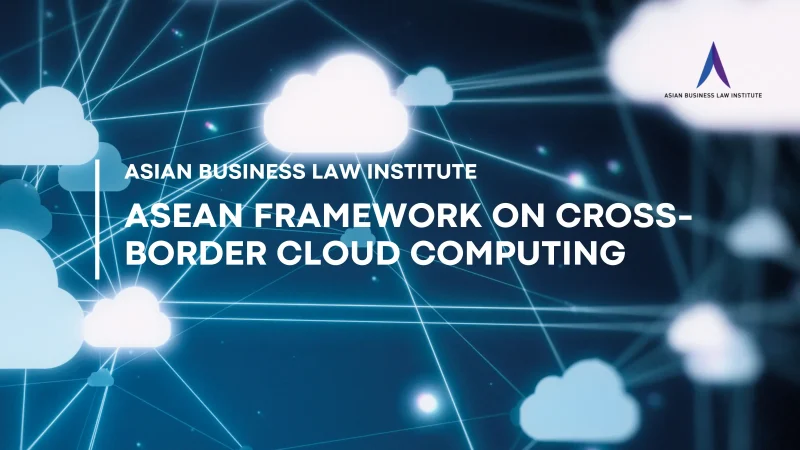Effective wealth preservation and succession planning are essential to minimize legal and tax liabilities. Optimizing your corporate structure will allow you to be prepared for a smooth and efficient succession of your business, and/or your family assets.
Protecting your assets and priming it for succession is not only about the transfer of ownership when the time comes, but strong considerations will also need to be given to the platform on which the assets are managed, whether efficient and quick transfer of assets is possible, and how the fruits of the assets can be enjoyed throughout the years in a fair and efficient manner for all stakeholders.
This article aims to provide a general overview of the various considerations high-net-worth individuals or families can consider to grow and preserve their assets and prepare to pass it onto the next generation. This article will also provide an in-depth analysis of each different methods of wealth preservation and modes of succession commonly adopted namely (i) Family Offices; (ii) VCCs; (iii) Trusts; and (iv) Family Constitutions.
1. FAMILY OFFICE
What is a Family Office?
Family offices are formed for the purposes of management of the family assets, either as a Single Family Office (SFO) or a Multi-Family Office (MFO). The difference between the two being that the former manages assets belonging to only one family and the latter manages third party assets of two or more families. There are also different regulatory requirements between the two. Since a SFO only manages the assets of a single family, they may usually stray outside of any rigorous licensing requirements. However, a MFO manager will need to apply for a license to manage assets of different families as fund management is an activity that would typically require licensing in a number of jurisdictions, such as Singapore.
SFO is not defined under the Securities and Futures Act (SFA). However, the Frequently Asked Questions on the Licensing and Registration of Fund Management Companies (FAQs)1 provides that it would “typically refers to an entity which manages assets for or on behalf of only one family and is wholly owned or controlled by members of the same family.”. The term “family” may refer to “individuals who are lineal descendants from a single ancestor, as well as the spouses, ex-spouses, adopted children and step children of these individuals.”. In a response to the feedback from the regulatory body in Singapore, namely the Monetary Authority of Singapore (MAS), dated 6 November 2024 the MAS stated that the definition will be expanded to include “parents-in-law and siblings-in-law as family”.
Essentially a SFO allows all family members from a single family to pool their assets together for wealth preservation for the next generation which may include new family members through marriage and/or by having/adopting children. This allows them to safeguard their privacy as well as gives the family full authority to manage their assets at any time.
Difference between Single Family Office and Private Banking
SFOs and private banking offer different solutions depending on the needs of the family and its members. Whilst private banking may be able to provide investment advice, personal financing solutions such as personalized interest rates, lending terms, customer service, managing deposits and/or lending services, their services may be limited to the bank’s products and offerings only. A private banker is also able to assist to manage investment portfolios, trusts and/or business accounts amongst other things. A SFO on the other hand is able to offer investment management advice, estate planning advice and more importantly focus on inheritance and family succession which is usually the key goal in setting up an SFO. That is possible because employees of the SFO can focus on the needs of the family solely.
Types of Assets
SFOs are free to elect any type of portfolios to invest in and these are usually quite diverse. The type of assets can also be dependent on the goals of the SFO and can include shares in a foreign company, buying real estate, incorporating a subsidiary company in a foreign jurisdiction. Some of these assets, whether local or foreign, may come with tax or legal complexities.
2. TRUSTS
What is a trust?
A trust is a legal arrangement whereby an individual (referred to as the Settlor), transfers his assets to another individual or company (Trustee(s)) to manage the transferred assets, on the Settlors behalf, for a class of beneficiaries as may be pre-determined by the Settlor and updated from time to time (referred to as the Beneficiaries). The Trustees Act 1967 confers powers to the Trustees and governs how they should act. In some circumstances, a protector may be appointed by the Settlor to ensure that the Trustee(s) do not abuse their power and act in the interests of the Beneficiaries. Trusts are commonplace in both common law jurisdictions, and various civil law jurisdictions. Many countries have enacted legislations similar to the Trustees Act 1967 and/or recognize certain forms of ‘trusts’ as a tool in their legal system.
Why choose a trust?
A Trust is first and foremost private and does not need to be registered with any authority in most jurisdictions. Trusts allow the Settlor’s assets to be protected from creditors or lawsuits. Where a Settlor becomes bankrupt or is sued, the assets under a trust may not be used to settle creditor or compensation claims. However, the assets to be protected under a trust must have been transferred to the trust for a minimum period of five years.
Trusts are also created for tax efficiency purposes whereby the Settlor will not be taxed for the income-generating trust that was created. However, the trust and distributions to the beneficiaries will be taxed but will be subjected to a lower rate.
Another important feature of a trust would be that in the event that the Settlor loses mental capacity and/or passes on, the beneficiaries will still be able to access the assets under the trust instead of having to apply and wait for a deputyship order or a grant of probate and/or letter of administration from the Court. There are various types of trusts depending on the needs of the family such as express trust, discretionary trust and whether or not these trusts are revocable and irrevocable.
3. FAMILY CONSTITUTIONS
What is a Family Constitution?
As families grow, family businesses develop and wealth increases, there may come a point where these families see the need and value of a Family Constitution. A Family Constitution would help families navigate various facets of their family relationships. It can also help to address and define the roles of family members inside and outside of a family business. This may include rules and regulations on the utilization of family assets and capital.
A Family Constitution is a formal document that sets out the family’s rules, short-term goals, and governance for various facets of the family. The Family Constitution can be particularly useful when there are disagreements over how businesses should be run, how capital can be deployed or utilized, or certain family decisions, e.g. when a family member passes.
Why a Family Constitution?
A Family Constitution can be useful for families. In the process of drafting a Family Constitution, the family will ideally be gathering input from all family members. In doing so, that family will be able to ensure that the Family Constitution can be drafted in a clear manner thereby ensuring that family values, vision and mission statements are free of ambiguities from the start. As it is often a sensitive issue, third party intermediaries may sometimes be useful in participating and playing a role in these discussions.
A Family Constitution should be drafted in a language that is accessible to the family considering that various generations of a family will be looking towards the Family Constitution when the need arises. It should also be continuously reviewed as new family members may join either through marriage, adoption and/or by having children. It should also cater to situations where elderly family members are in key positions and may be unable and/or unwilling to continue performing. The drafting of a Family Constitution therefore requires a lot of thought and meticulous drafting but also be able to anticipate possible scenarios that may occur within the family.
4. TAX INCENTIVES
Given the rise of various Asia Pacific (APAC) economies, so does the rise for the demand of more sophisticated products and legal mechanisms that can efficiently and effectively protect the assets of family members. Singapore has recognized this need and has continued to play a significant role in protecting the assets of various businesses and families in the APAC region, which include various tax benefits being implemented for the management of certain assets in Singapore.
The Singapore government has introduced various tax exemptions schemes so that certain qualified collective investment schemes in Singapore can enjoy tax exemptions on almost all investment income and gains. For our purposes, the tax exemptions are governed by Section 13O and Section 13U of the Income Tax Act (ITA). These are often known as the 13O and 13U Tax Exemptions. They may also be referred to as the Onshore Fund Tax Exemption Scheme/The Singapore Resident Fund Scheme or the Enhanced Tier Fund Tax Exemption Scheme respectively. We regularly work with our tax advisors / consultants to provide tax advice on might be the best scheme for them.
5. CONCLUSION
Our private client, tax and investment funds team at PDLegal work closely with our clients from all corners of the world with managing their assets and conducting tax planning exercise as part of succession preparation. We work with family businesses, family offices, fund managers, as well as private banks to ensure that our clients receive the most optimal solution.
At the recent Global Asia Summit Program on 16 September 2024, Mr Chee Hong Tat, the Minister for Transport and Second Minister for Finance stated that “The family office community in Singapore is a vibrant and growing space. From just 400 single family offices awarded MAS tax incentives as at 2020, it grew 3.5 times to 1,400 at the end of last year. In the first 8 months this year, we added another 250 to reach 1,650 single family offices. Growth has continued to be robust, and we expect the number of new single family offices for 2024 to surpass the 300 that we added in 2023”. Mr Chee, also the deputy chairman for the Monetary Authority of Singapore also stated that said that the “Asia-pacific region is expected to grow by 4.9 per cent in 2025, faster than any other part of the world. And Singapore as a hub in Asia will benefit from this positive development, growing together with our region.”.
© PDLegal LLC
This article is intended to provide general information only and does not constitute legal advice. It should not be used as a substitute for professional legal consultation. We recommend seeking legal advice before making any decisions based on the information available in this article. PDLegal fully disclaims responsibility for any loss or damage which may result from relying on this article.
Further information
Should you have any questions on how this article may affect you or your business, please get in touch with the following person:

